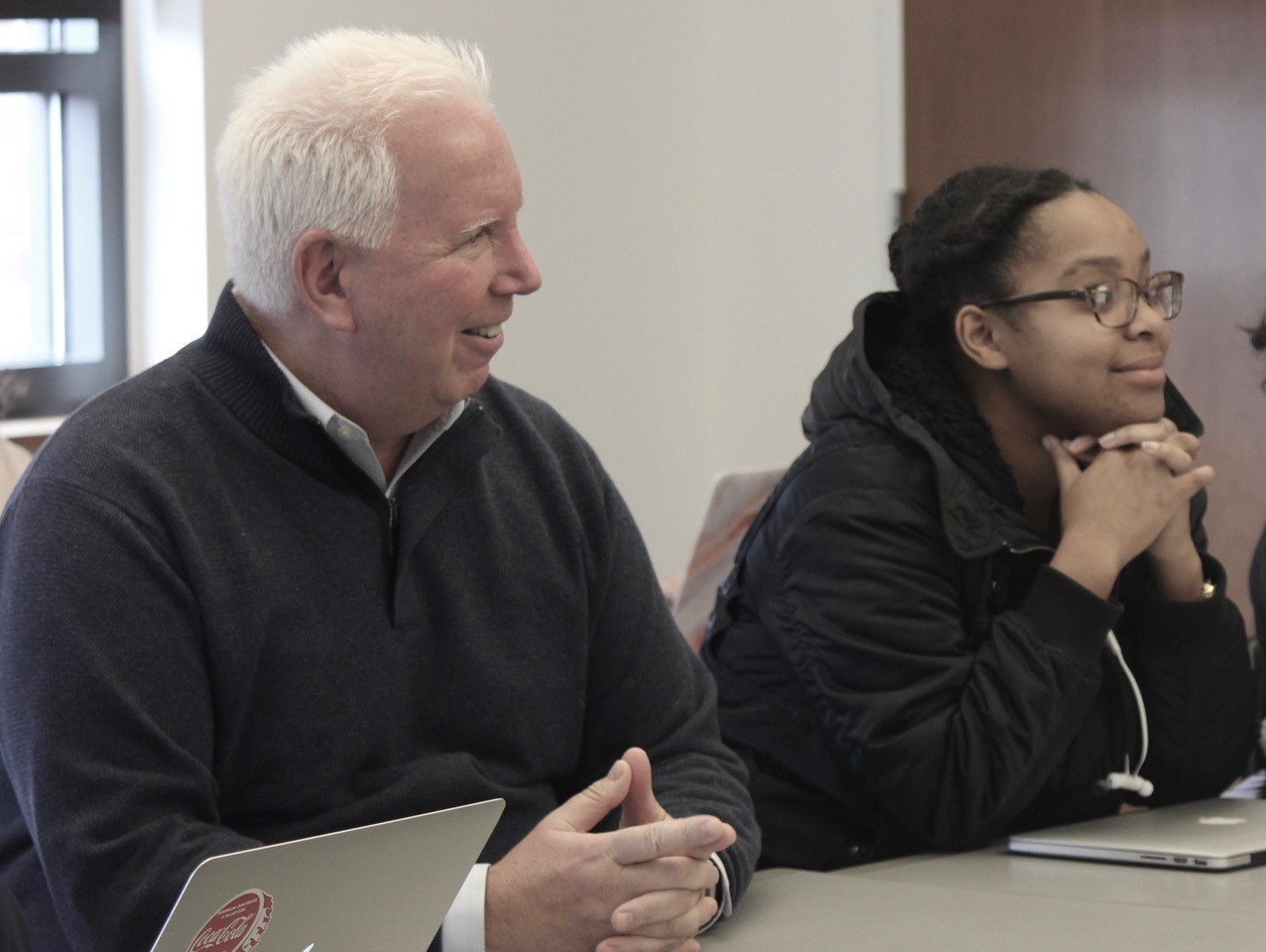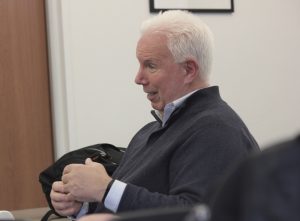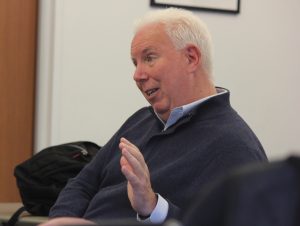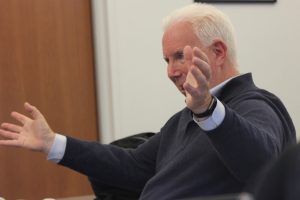
There’s nothing David Rosen ’78 (PHARM) likes better than a challenge, and he has met more than a few in a nearly 40-year career that started in 1978 when he was a newly-minted UConn School of Pharmacy graduate.
Currently a partner and public policy lawyer with Foley & Lardner, LLP in Washington, D.C., his professional career has been a steady progression from young upstart at the United States Public Health Service (PHS) where he worked immediately after graduation, through various positions of increasing responsibility at the Federal Food and Drug Administration (FDA), to graduation from law school and a subsequent legal career where he has represented some of the biggest names in the pharmaceutical industry in their dealings with the FDA.
The Beginning

The story of his professional trajectory begins when Rosen entered the UConn School of Pharmacy, thinking that a degree in pharmacy would help strengthen his future application to medical school. However, an internship at The Connecticut Poison Center at UConn Health caused him to rethink his goal.
“I was fortunate to spend time at the Connecticut Poison Control Center and I got really interested in that aspect of pharmacy. I intended to apply to work in one of the New England Poison Control Centers, not realizing that with only six centers in New England, job opportunities would be limited,” Rosen says.
But when one opportunity didn’t materialize, another developed and Rosen went for it.
“I decided to take a ‘leave of absence’ from doctor [Henry] Palmer’s class one day so that I could attend a talk given by someone from the United States Public Health Service – a division of the Department of Health, Education, and Welfare (HEW). He talked about practicing pharmacy on the hospital ship USS HOPE and traveling around the world providing civilian medical care. I was hooked. When I applied for a job I included my interest in drug and poison information, plus my computer expertise, and before I knew it I was offered a job.”
Rosen’s desk was in Rockville, Maryland – not on the good ship HOPE – and he made an immediate impression. One of the things he noticed upon arriving at the PHS was that the information contained in the agency’s printed material derived from computerized databases was rife with errors and inconsistencies.
At a meeting of division directors where the newly-hired Rosen was introduced as the Bureau of Drugs’ lexicographer, he put up overheads that showed inconsistencies with the spelling of drug company names, active ingredients, dosage forms, and routes of administration. He then gently reminded his audience about the importance of producing accurate information on FDA approved drug products in all their public communications.
At first, his superiors were less than amused by his cheekiness, but his point was well-taken. In January 1979, under Rosen’s direction and leadership, the Approved Drug Products with Therapeutic Equivalence Evaluations document was produced. It was comprehensive, and accurate.
Known as the Orange Book, it identifies drug products approved on the basis of safety and effectiveness and is still used throughout the pharmaceutical industry on a daily basis.

From there, his rise through the FDA included time in the Division of Generic Drugs where he was chief of the review support branch, and involvement in the writing and implementation of the Drug Price Competition and Patent Term Restoration Act of 1984 – commonly called the Hatch-Waxman Act. This federal act encourages the manufacture of generic drugs by the pharmaceutical industry.
Expanded Horizons
While attending law school nights at the Catholic University of America’s Columbus School of Law, Rosen switched from the generic drug side of the FDA to the area involved with new drugs.
“This was early in the AIDS crisis I thought it would be interesting to go to the area where new drugs were being investigated. My job involved working on the program where newly developed drugs could go through an accelerated approval process. One of those drugs was Videx Didanosine – Videx – which is an antiviral medicine that prevents HIV from multiplying. I was proud to be part of that process. I really felt I was making a difference in people’s lives,” he says.
There were a number of other advancements through the FDA, including serving as regulatory counsel and special assistant to the director for the Center for Drug Evaluation and Research.
But then there was that law degree. Rosen, who says with a smile that law school was actually easier than pharmacy school, decided he wanted to concentrate on that area of his professional life.
He practiced law at three prominent law firms before becoming a partner in the 1100-member law firm Foley and Lardner in 2005. There, he is FDA Practice Group Leader, co-chair of the firm’s Life Sciences Industry Team, and a member of the Government & Public Policy Practice and the Health Care and Food & Beverage Industry teams.
A frequent speaker before national and international pharmaceutical industry associations on the Abbreviated New Drug Application (ANDA) and the Investigational New Drug Application (INDA), he also participates in conferences and webinars on a wide range of industry matters. Dating back to his days at UConn, he still maintains a keen interest in compounding pharmacies and the roles and responsibilities of pharmacists in this area.

Most people would be tired by this busy schedule, but Rosen is both a dedicated family man and a self-described “gym rat,” exercising regularly at lunchtime. He also finds time to give back via pro bono work and fund raising for organizations such as the Michael J. Fox Foundation and Memorial Sloan Kettering and he is a member of the UConn School of Pharmacy Advisory Board.
It’s all part of his commitment to his profession and his community.
As for his success over the years, he says, “I am just very grateful I was in the right place at the right time. I’m happy I decided not to attend class that day, all those years ago. I appreciate that Dean [Arthur E.] Schwarting and Dr. [Karl] Nieforth wrote nice things about me on my application to the Public Health Service. I can’t overestimate the value of my pharmacy education. It started this whole process and I’m forever grateful.”
And, he adds, “I’m not retiring any time soon!”


